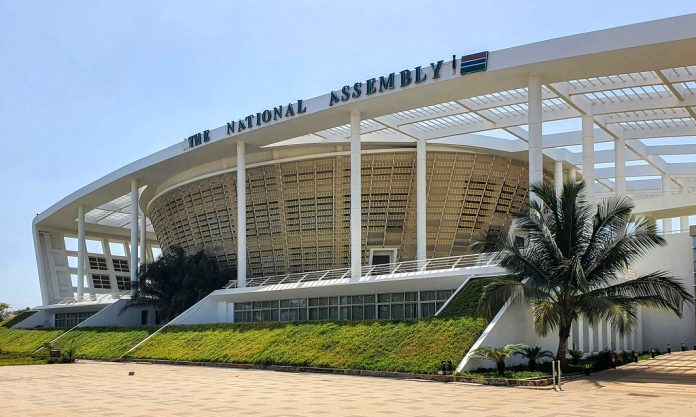By Kebba AF Touray
Members of the Gambia’s National Assembly continue to consider the Elections Bill 2021, which introduces detailed procedures in the electoral processes.
The bill comprises 157 Clauses, 11 parts, and four schedules and seeks to repeal the Elections Act, Cap. 3:01, which is in line with best practices to achieve the cardinal principles of a free and fair election in the country.
During Tuesday’s sitting, members considered the Bill, which in Clause 14 sub clause (1), mandates the Independent Electoral Commission (IEC) to register Gambians living abroad if the person satisfies the requirements for registration. Clause 14 of the bill deals with the Registration of Gambians living abroad, and Clause 14 subclause (1) states: “The Commission shall register a Gambian living outside The Gambia as a voter if he or she satisfies the requirements for registration prescribed under this Act.” Subclause (2) adds that the Commission shall, in consultation with the Inter-Party Committee and Cabinet, prescribe detailed rules for the registration and voting of Gambians living outside The Gambia to vote in Presidential elections, referenda, or any other elections as determined by the Constitution or any other law. Moreover, sub clause (3) dictates the rules made by the Commission under a specified sub-section in sub clause (a) “the criteria for the selection of foreign countries where elections are to be conducted; and in sub clause (b), ‘‘the appointment of election officers and the conduct of elections.” Clause 25 of the Bill which talks about issuing voters cards indicates that in sub clause (2), the Commission shall: (a) insert in a voter’s card, the Constituency or foreign country in which a voter is registered; and in sub clause (b), prepare a voter’s card as set out in Form 2 in the Third Schedule.
Sub clause 3 of the Bill adds: “A voter’s card issued to a claimant under sub-section (2) shall: (a) only be used by the claimant; or (b), be valid for ten years or such period that the Commission may declare valid.”
The same subclause also stipulates that an Election Officer may seize and retain any voter`s card which he or she suspects to be invalid, pending an inquiry.
Clause 112 of the bill dilates on the offences in respect of voter registration, voter forms and voting, in subclause 1 (A to H). It highlights such offences as false declaration or statement on a claim for registration, inducement of any other person to register, damage to a ballot box, forging any ballot token, and stealing or removing a ballot box from a polling station, among others.
The Bill in the sub clause 112 prescribed the punishment for these mentioned damages, and states that such a person “commits an offence and is liable to a fine of five hundred thousand Dalasi and an imprisonment of two years.” Moreover, subclause 2 also outlines the punishment for the offences thus: “a person convicted of an offence under sub-section (1) shall be disqualified from being registered as a voter or for voting at any election for a period of ten years from the date of his or her conviction”.
This bill has taken into account that electoral laws must conform to the needs and aspirations of the electorate in a truly democratic society for the full participation of all eligible citizens through the casting of votes.
Apart from the above, the bill seeks to introduce a detailed procedure and analysis in the publication of the final results by the Chairperson of the Independent Electoral Commission, after the conduct of a particular election or referendum and during the declaration of results. The criteria for such analysis of the results have now been provided for in the bill.



















